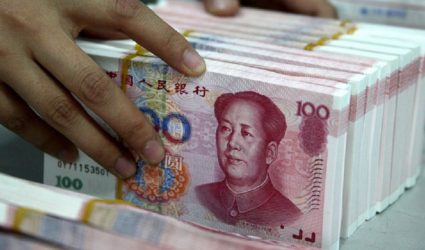China’s new digital currency could encourage worldwide use of the yuan, says CEO

(CNBC) – China’s proposed digital currency could trigger global use of the yuan, according to the CEO of American cryptocurrency financial services firm Circle.
The People’s Bank of China (PBOC) last month announced that it’s close to launching its own digital currency, saying that the rationale behind the move is to “protect” its foreign exchange sovereignty.
China’s central bank plans to launch its digital token through a two-tier system, under which both the PBOC and commercial banks would be legitimate issuers.
“I look at this really meeting several goals. But, I think the bigger opportunity here is this is a way for the Chinese yuan to be distributed globally,” Circle CEO Jeremy Allaire told CNBC’s “Squawk Box” on Wednesday.
“This becomes a mechanism by which (the yuan) can be used in everyday transactions all around the world,” added Allaire, an internet entrepreneur who also founded video streaming firm Brightcove. “It’s ultimately a foundation for the internationalization” of the yuan.
Beijing has in recent years pushed hard to get more international entities to use the yuan outside China.
The U.S. dollar is currently the world’s “reserve currency” — about 58 percent of all foreign exchange reserves in the world are in U.S. dollars, according to the IMF, and about 40 percent of the world’s debt is denominated in dollars.
Mu Changchun, deputy director of the PBOC’s payments department, said that the new digital currency will have similarities to Facebook’s proposed Libra coin. It would be as safe as central-bank issued paper notes, he claimed, and could be used on platforms such as Tencent’s WeChat and even without an internet connection.
Libra, which was unveiled in June, will be backed by relatively stable government-backed money — unlike bitcoin and other cryptocurrencies, which can be highly volatile and speculative.
Facebook says it’s designed to enable anyone to securely store money for free on their phone and to allow people to securely send and receive Libra around the world.
Allaire pointed out that China’s proposed digital currency “bypasses the Western banking system, SWIFT, things like this.” He was referring to the Belgium-based Society of Worldwide InterBank Financial Telecommunications that enables financial institutions to send and receive information on cross-border payments.
The digital currency is “quite strategic,” he said. Allaire added that it would let authorities more easily track monetary supply — allowing Beijing to tackle issues such as corruption and money laundering.

